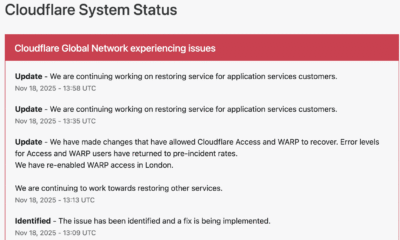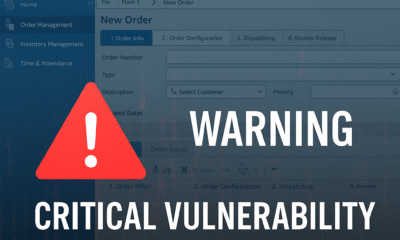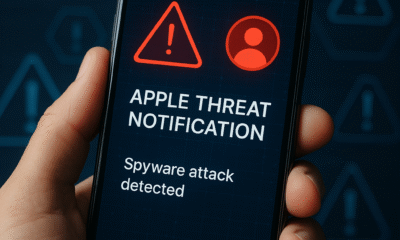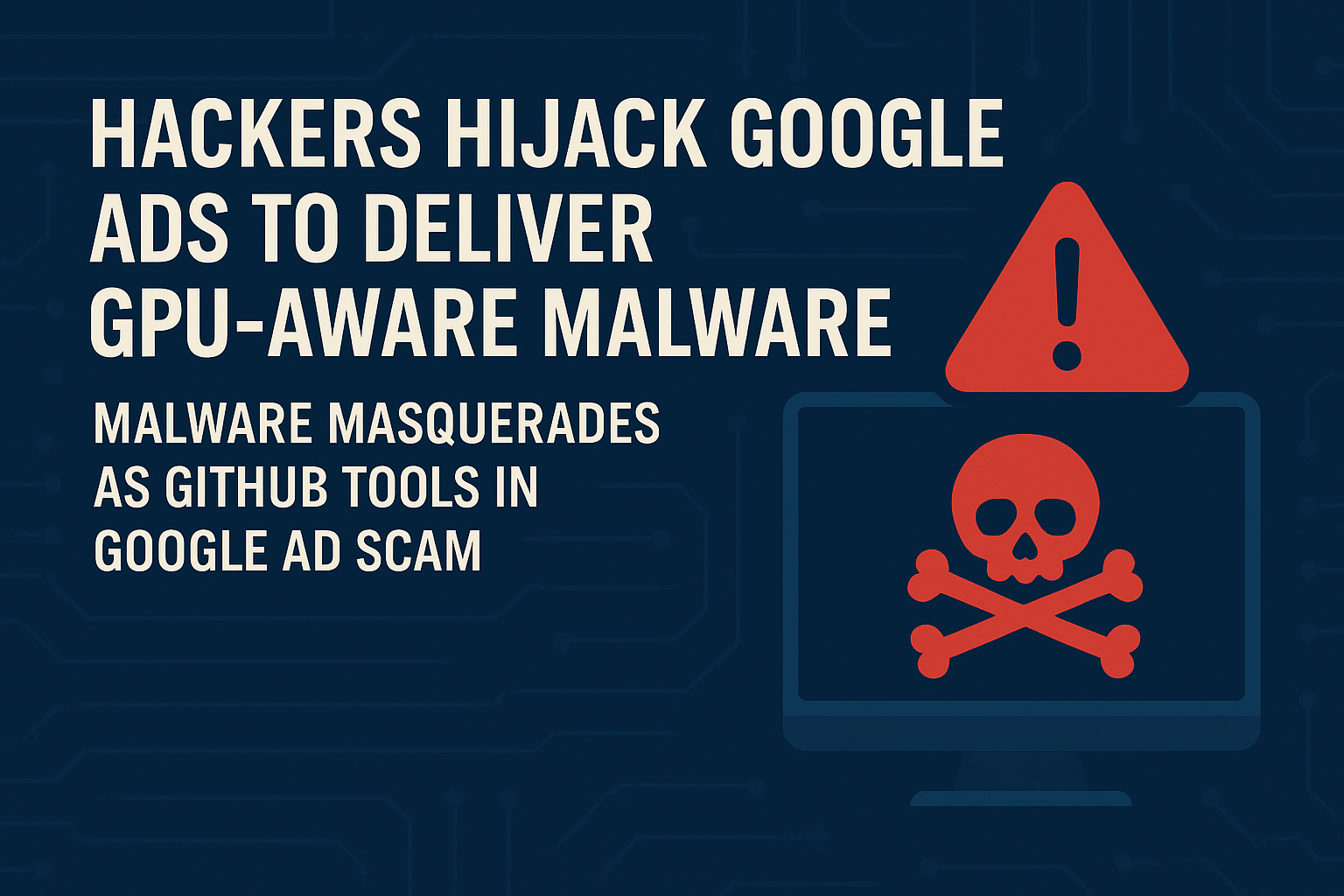data breaches
Statewide Internet Outage at Delaware Libraries Caused by Hackers: A Critical Incident in Public Infrastructure

A statewide internet outage has paralyzed Delaware’s public library system, leaving thousands of residents without access to essential digital resources for over a week. The cause? A malicious cyberattack targeting the libraries’ network infrastructure, an event that underscores the vulnerability of public institutions to modern cyber threats.
Delaware’s library network, which spans dozens of libraries across the state, is a vital resource for many residents, particularly those in rural and low-income communities. For years, the system has served as a critical hub for free internet access, educational resources, job searches, and other essential digital services. But last week, the network was abruptly taken offline due to a coordinated cyberattack, forcing the state to confront a serious cybersecurity breach with far-reaching consequences.
The Attack: A Targeted Cyber Assault on Public Infrastructure
The incident began on a Tuesday morning when library staff across Delaware reported widespread internet outages. At first, it appeared to be a routine technical problem—possibly an issue with the state’s internet service provider. However, as IT teams investigated further, it became clear that the problem was far more severe. Hackers had infiltrated the libraries’ central network, executing a Distributed Denial of Service (DDoS) attack that overwhelmed the system’s servers and rendered internet access impossible.
Further investigation revealed that the attack did not stop at simply overloading the system with traffic. Hackers had also deployed ransomware that encrypted vital data and files on library servers, preventing IT teams from regaining control of the system. This dual-layer attack—combining DDoS and ransomware—was specifically designed to maximize disruption and hinder recovery efforts.
According to Delaware’s Chief Information Security Officer (CISO), the attack likely originated from an organized cybercrime group with experience targeting vulnerable public institutions. The CISO noted that while there have been smaller cyberattacks on public infrastructure in the past, this is one of the most significant and wide-reaching incidents in the state’s history.
Impact on Libraries and the Community
The immediate impact of the outage has been felt by Delaware’s most vulnerable populations—students, job seekers, and residents without access to reliable internet at home. Libraries have long served as digital lifelines for those who lack high-speed internet, providing essential services such as online education, access to government programs, research databases, and even communication with family and friends.
With the network down, patrons have been unable to use library computers for job applications, distance learning, or even basic email access. Many students, particularly those from low-income households, rely on the library’s internet to complete school assignments or access digital learning materials. For these students, the outage has created an additional barrier to education.
For those seeking employment, the outage has been devastating. Many patrons use library resources to search for job listings, prepare resumes, and complete online job applications. The timing of the attack—occurring during a period of economic uncertainty—has further compounded the hardship for those already struggling to find work.
Additionally, the library system serves as a key access point for government services, including tax filings, unemployment claims, and social security information. Without internet access, Delaware residents are facing delays in completing critical tasks, which could result in financial and legal consequences.
State Response: A Race Against Time
In response to the attack, Delaware’s Office of Information Security (OIS) has been working around the clock to contain the damage and restore services. The state has partnered with federal cybersecurity agencies, including the Cybersecurity and Infrastructure Security Agency (CISA), to investigate the attack and identify the perpetrators.
According to OIS officials, while they have made some progress in mitigating the DDoS attack and isolating affected systems, restoring full internet service to all libraries could take time. The ransomware component of the attack has encrypted vast amounts of data, including critical administrative files and user data stored on the library’s servers.
The decision of whether to pay the ransom remains a contentious issue. Ransomware demands often range from tens of thousands to millions of dollars, with no guarantee that paying will result in the release of encrypted data. Delaware’s leadership has not disclosed the specific ransom amount demanded by the hackers, but state officials have made it clear that they are exploring all options, including potential data recovery without paying the ransom.
The state’s cybersecurity experts are also performing forensic analysis to determine how the attackers were able to breach the libraries’ systems in the first place. Preliminary reports suggest that the hackers may have exploited a known vulnerability in an outdated system that had not been properly patched. This has raised broader questions about the cybersecurity posture of public institutions and whether sufficient resources are being allocated to protect critical infrastructure from increasingly sophisticated attacks.
Cybersecurity in Public Institutions: A Growing Threat
This attack on Delaware’s library system is not an isolated event. Public institutions across the U.S. are increasingly becoming prime targets for cybercriminals. Schools, hospitals, city governments, and libraries are often seen as “soft targets” due to underfunded cybersecurity measures, outdated systems, and the high value of the data they manage. In recent years, there has been a marked increase in ransomware attacks on public entities, forcing many to either pay hefty ransoms or endure prolonged service outages.
The Delaware attack follows a series of high-profile ransomware incidents, including attacks on public school districts, healthcare providers, and municipal governments. For example, in 2023, the City of Dallas, Texas, was brought to a standstill by a similar ransomware attack that encrypted city data, halting vital services for weeks. In 2021, the Colonial Pipeline attack disrupted fuel supplies across the eastern U.S., demonstrating the potential for cyberattacks to have widespread, real-world consequences.
Cybersecurity experts warn that public institutions must prioritize investment in robust cybersecurity measures if they are to defend against increasingly sophisticated attacks. This includes regular updates to software systems, stronger encryption for sensitive data, employee training to recognize phishing schemes, and improved incident response plans.
The Path to Recovery
As Delaware’s library system slowly works towards recovery, the road ahead will be challenging. The technical recovery of encrypted data could take weeks or even months, and there is still no clear timeline for when full internet service will be restored. In the interim, libraries have had to improvise, offering limited in-person services such as book checkouts, while directing patrons to nearby Wi-Fi hotspots or alternative internet access points.
Delaware officials have vowed to use this incident as a learning opportunity to strengthen the state’s cybersecurity defenses. The state is already considering an audit of all public systems to identify vulnerabilities and ensure that proper defenses are in place to prevent future attacks. Additionally, lawmakers are exploring the possibility of increased funding for cybersecurity initiatives, recognizing that the costs of prevention are far lower than the costs of recovery after an attack.
A Wake-Up Call for Public Cybersecurity
The statewide internet outage in Delaware serves as a stark reminder of the vulnerabilities that exist in public sector cybersecurity. As digital systems become more entrenched in the daily operations of public institutions, the potential consequences of a successful cyberattack grow exponentially.
For Delaware residents, the disruption has underscored just how reliant they are on their library system not only for internet access but for a range of vital services. As state officials work to resolve the immediate crisis, the longer-term focus will be on preventing similar incidents in the future—by strengthening defenses, modernizing outdated systems, and fostering a culture of cybersecurity awareness at all levels of public infrastructure.
data breaches
Cloudflare Outage Disrupts Global Internet — Company Restores Services After Major Traffic Spike
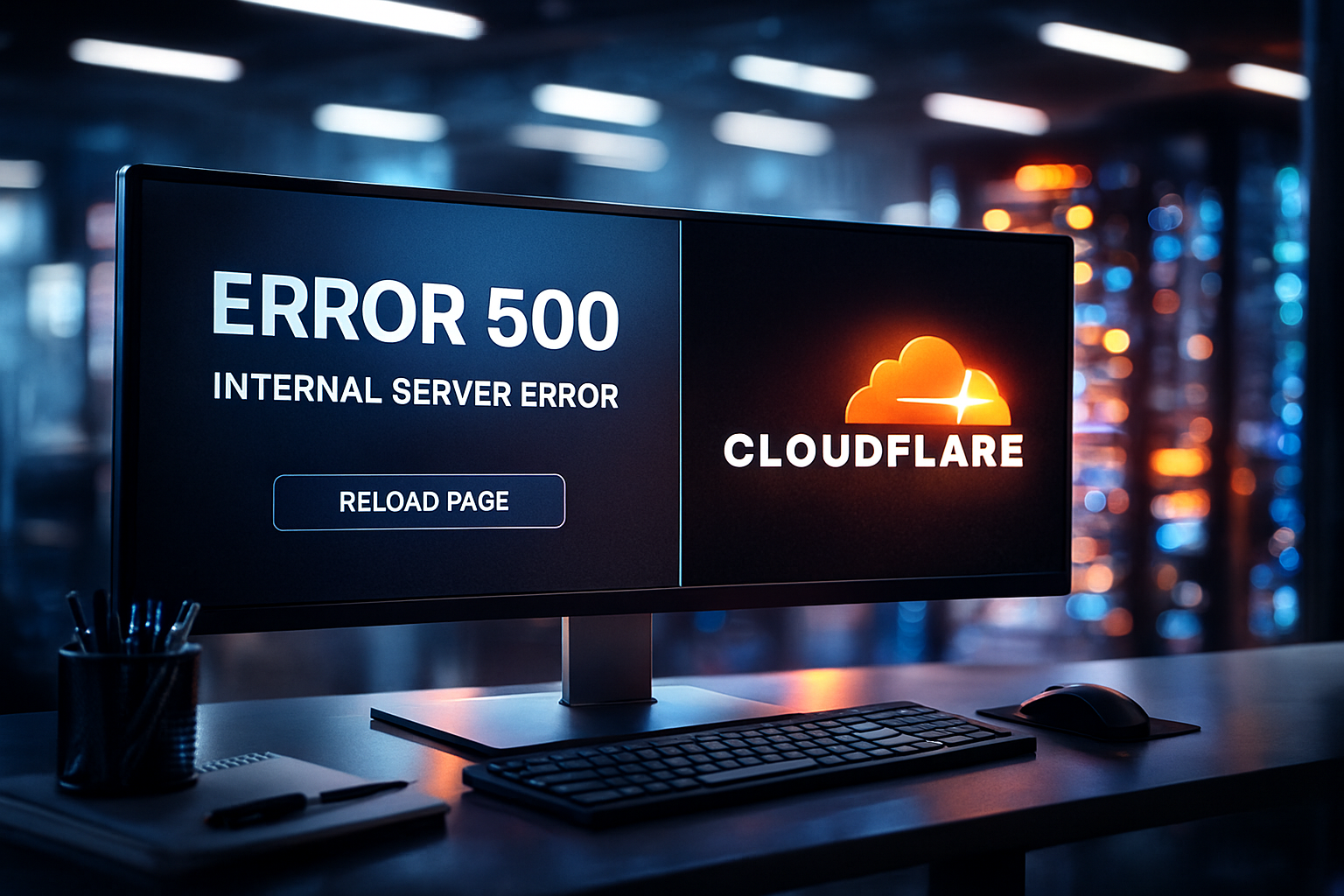
November 18, 2025 — MAG212NEWS
A significant outage at Cloudflare, one of the world’s leading internet infrastructure providers, caused widespread disruptions across major websites and online services on Tuesday. The incident, which began mid-morning GMT, temporarily affected access to platforms including ChatGPT, X (formerly Twitter), and numerous business, government, and educational services that rely on Cloudflare’s network.
According to Cloudflare, the outage was triggered by a sudden spike in “unusual traffic” flowing into one of its core services. The surge caused internal components to return 500-series error messages, leaving users unable to access services across regions in Europe, the Middle East, Asia, and North America.
Impact Across the Web
Because Cloudflare provides DNS, CDN, DDoS mitigation, and security services for millions of domains — powering an estimated 20% of global web traffic — the outage had swift and wide-reaching effects.
Users reported:
- Website loading failures
- “Internal Server Error” and “Bad Gateway” messages
- Slowdowns on major social platforms
- Inaccessibility of online tools, APIs, and third-party authentication services
The outage also briefly disrupted Cloudflare’s own customer-support portal, highlighting the interconnected nature of the company’s service ecosystem.
Cloudflare’s Response and Restoration
Cloudflare responded within minutes, publishing updates on its official status page and confirming that engineering teams were investigating the anomaly.
The company took the following steps to restore operations:
1. Rapid Detection and Acknowledgement
Cloudflare engineers identified elevated error rates tied to an internal service degradation. Public communications were issued to confirm the outage and reassure customers.
2. Isolating the Affected Systems
To contain the disruption, Cloudflare temporarily disabled or modified specific services in impacted regions. Notably, the company deactivated its WARP secure-connection service for users in London to stabilize network behavior while the fix was deployed.
3. Implementing Targeted Fixes
Technical teams rolled out configuration changes to Cloudflare Access and WARP, which successfully reduced error rates and restored normal traffic flow. Services were gradually re-enabled once systems were verified stable.
4. Ongoing Root-Cause Investigation
While the unusual-traffic spike remains the confirmed trigger, Cloudflare stated that a full internal analysis is underway to determine the exact source and prevent a recurrence.
By early afternoon UTC, Cloudflare confirmed that systems had returned to pre-incident performance levels, and affected services worldwide began functioning normally.
Why This Matters
Tuesday’s outage underscores a critical truth about modern internet architecture: a handful of infrastructure companies underpin a massive portion of global online activity. When one of them experiences instability — even briefly — the ripple effects are immediate and worldwide.
For businesses, schools, governments, and content creators, the incident is a reminder of the importance of:
- Redundant DNS/CDN providers
- Disaster-recovery and failover plans
- Clear communication protocols during service outages
- Vendor-dependency risk assessments
Cloudflare emphasized that no evidence currently points to a cyberattack, though the nature of the traffic spike remains under investigation.
Looking Ahead
As Cloudflare completes its post-incident review, the company is expected to provide a detailed breakdown of the technical root cause and outline steps to harden its infrastructure. Given Cloudflare’s central role in global internet stability, analysts say the findings will be watched closely by governments, cybersecurity professionals, and enterprise clients.
For now, services are restored — but the outage serves as a powerful reminder of how interconnected and vulnerable the global web can be.
data breaches
Cloudflare Outage Analysis: Systemic Failure in Edge Challenge Mechanism Halts Global Traffic
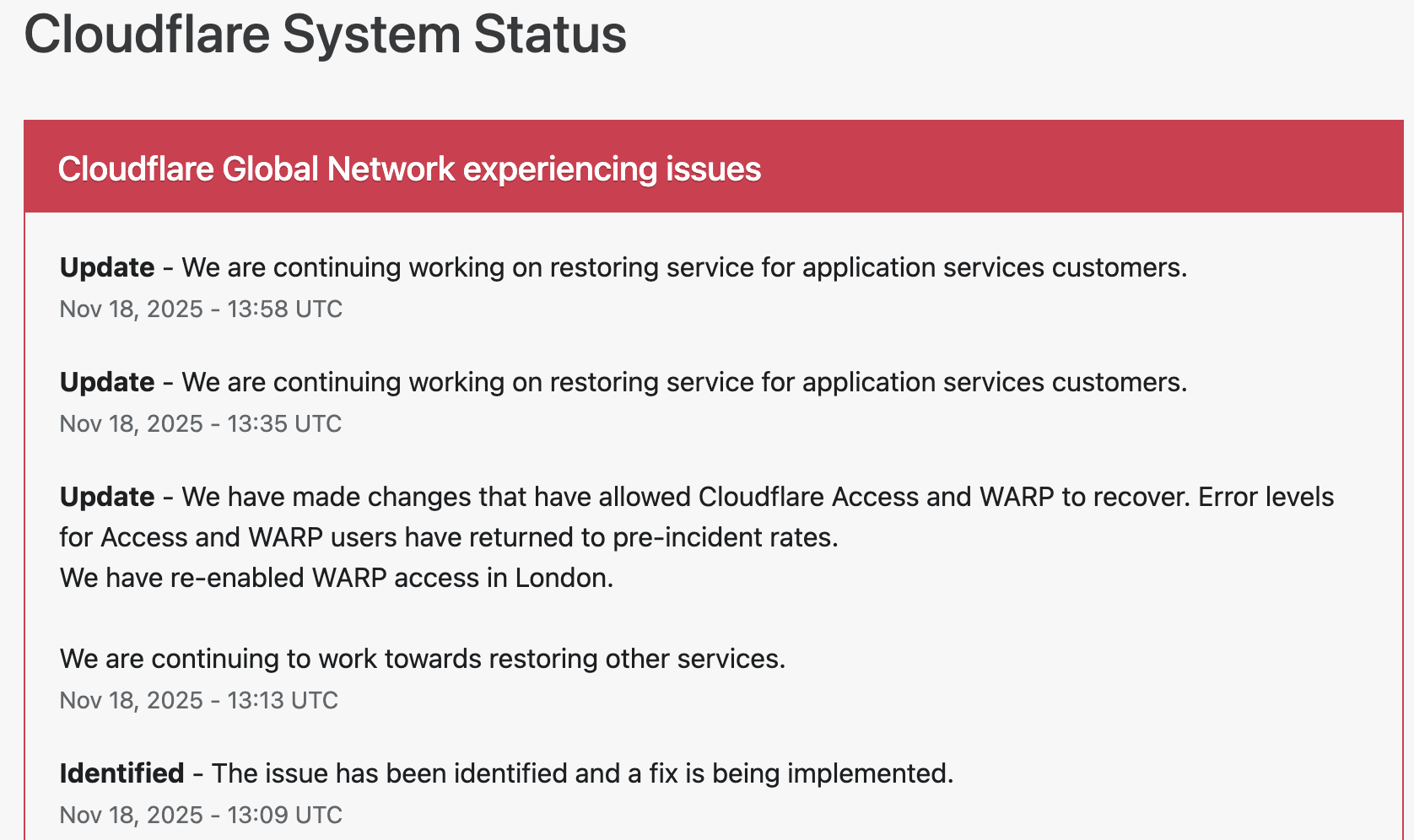
SAN FRANCISCO, CA — A widespread disruption across major internet services, including AI platform ChatGPT and social media giant X (formerly Twitter), has drawn critical attention to the stability of core internet infrastructure. The cause traces back to a major service degradation at Cloudflare, the dominant content delivery network (CDN) and DDoS mitigation provider. Users attempting to access affected sites were met with an opaque, yet telling, error message: “Please unblock challenges.cloudflare.com to proceed.”
This incident was not a simple server crash but a systemic failure within the crucial Web Application Firewall (WAF) and bot management pipeline, resulting in a cascade of HTTP 5xx errors that effectively severed client-server connections for legitimate users.
The Mechanism of Failure: challenges.cloudflare.com
The error message observed globally points directly to a malfunction in Cloudflare’s automated challenge system. The subdomain challenges.cloudflare.com is central to the company’s security and bot defense strategy, acting as an intermediate validation step for traffic suspected of being malicious (bots, scrapers, or DDoS attacks).
This validation typically involves:
- Browser Integrity Check (BIC): A non-invasive test ensuring the client browser is legitimate.
- Managed Challenge: A dynamic, non-interactive proof-of-work check.
- Interactive Challenge (CAPTCHA): A final, user-facing verification mechanism.
In a healthy system, a user passing through Cloudflare’s edge network is either immediately granted access or temporarily routed to this challenge page for verification.
During the outage, however, the Challenge Logic itself appears to have failed at the edge of Cloudflare’s network. When the system was invoked (likely due to high load or a misconfiguration), the expected security response—a functional challenge page—returned an internal server error (a 500-level status code). This meant:
- The Request Loop: Legitimate traffic was correctly flagged for a challenge, but the server hosting the challenge mechanism failed to process or render the page correctly.
- The
HTTP 500Cascade: Instead of displaying the challenge, the Cloudflare edge server returned a “500 Internal Server Error” to the client, sometimes obfuscated by the text prompt to “unblock” the challenges domain. This effectively created a dead end, blocking authenticated users from proceeding to the origin server (e.g., OpenAI’s backend for ChatGPT).
Technical Impact on Global Services
The fallout underscored the concentration risk inherent in modern web architecture. As a reverse proxy, Cloudflare sits between the end-user and the origin server for a vast percentage of the internet.
For services like ChatGPT, which rely heavily on fast, secure, and authenticated API calls and constant data exchange, the WAF failure introduced severe latency and outright connection refusal. A failure in Cloudflare’s global network meant that fundamental features such as DNS resolution, TLS termination, and request routing were compromised, leading to:
- API Timeouts: Applications utilizing Cloudflare’s API for configuration or deployment experienced critical failures.
- Widespread Service Degradation: The systemic 5xx errors at the L7 (Application Layer) caused services to appear “down,” even if the underlying compute resources and databases of the origin servers remained fully operational.
Cloudflare’s official status updates confirmed they were investigating an issue impacting “multiple customers: Widespread 500 errors, Cloudflare Dashboard and API also failing.” While the exact trigger was later traced to an internal platform issue (in some historical Cloudflare incidents, this has been a BGP routing error or a misconfigured firewall rule pushed globally), the user-facing symptom highlighted the fragility of relying on a single third-party for security and content delivery on a global scale.
Mitigation and the Single Point of Failure
While Cloudflare teams worked to roll back configuration changes and isolate the fault domain, the incident renews discussion on the “single point of failure” doctrine. When a critical intermediary layer—responsible for security, routing, and caching—experiences a core logic failure, the entire digital economy resting on it is exposed.
Engineers and site reliability teams are now expected to further scrutinize multi-CDN and multi-cloud strategies, ensuring that critical application traffic paths are not entirely dependent on a single third-party’s edge infrastructure, a practice often challenging due to cost and operational complexity. The “unblock challenges” error serves as a stark reminder of the technical chasm between a user’s browser and the complex, interconnected security apparatus that underpins the modern web.
data breaches
Manufacturing Software at Risk from CVE-2025-5086 Exploit

Dassault Systèmes patches severe vulnerability in Apriso manufacturing software that could let attackers bypass authentication and compromise factories worldwide.
A newly disclosed flaw, tracked as CVE-2025-5086, poses a major security risk to manufacturers using Dassault Systèmes’ DELMIA Apriso platform. The bug could allow unauthenticated attackers to seize control of production environments, prompting urgent patching from the vendor and warnings from cybersecurity experts.
A critical vulnerability in DELMIA Apriso, a manufacturing execution system used by global industries, could let hackers bypass authentication and gain full access to sensitive production data, according to a security advisory published this week.
Dassault Systèmes confirmed the flaw, designated CVE-2025-5086, affects multiple versions of Apriso and scored 9.8 on the CVSS scale, placing it in the “critical” category. Researchers said the issue stems from improper authentication handling that allows remote attackers to execute privileged actions without valid credentials.
The company has released security updates and urged immediate deployment, warning that unpatched systems could become prime targets for industrial espionage or sabotage. The flaw is particularly alarming because Apriso integrates with enterprise resource planning (ERP), supply chain, and industrial control systems, giving attackers a potential foothold in critical infrastructure.
- “This is the kind of vulnerability that keeps CISOs awake at night,” said Maria Lopez, industrial cybersecurity analyst at Kaspersky ICS CERT. “If exploited, it could shut down production lines or manipulate output, creating enormous financial and safety risks.”
- “Manufacturing software has historically lagged behind IT security practices, making these flaws highly attractive to threat actors,” noted James Patel, senior researcher at SANS Institute.
- El Mostafa Ouchen, cybersecurity author, told MAG212News: “This case shows why manufacturing execution systems must adopt zero-trust principles. Attackers know that compromising production software can ripple across supply chains and economies.”
- “We are actively working with customers and partners to ensure systems are secured,” Dassault Systèmes said in a statement. “Patches and mitigations have been released, and we strongly recommend immediate updates.”
Technical Analysis
The flaw resides in Apriso’s authentication module. Improper input validation in login requests allows attackers to bypass session verification, enabling arbitrary code execution with administrative privileges. Successful exploitation could:
- Access or modify production databases.
- Inject malicious instructions into factory automation workflows.
- Escalate attacks into connected ERP and PLM systems.
Mitigations include applying vendor patches, segmenting Apriso servers from external networks, enforcing MFA on supporting infrastructure, and monitoring for abnormal authentication attempts.
Impact & Response
Organizations in automotive, aerospace, and logistics sectors are particularly exposed. Exploited at scale, the vulnerability could cause production delays, supply chain disruptions, and theft of intellectual property. Security teams are advised to scan their environments, apply updates, and coordinate incident response planning.
Background
This disclosure follows a string of high-severity flaws in industrial and operational technology (OT) software, including vulnerabilities in Siemens’ TIA Portal and Rockwell Automation controllers. Experts warn that adversaries—ranging from ransomware gangs to state-sponsored groups—are increasingly focusing on OT targets due to their high-value disruption potential.
Conclusion
The CVE-2025-5086 flaw underscores the urgency for manufacturers to prioritize cybersecurity in factory software. As digital transformation accelerates, securing industrial platforms like Apriso will be critical to ensuring business continuity and protecting global supply chains.



